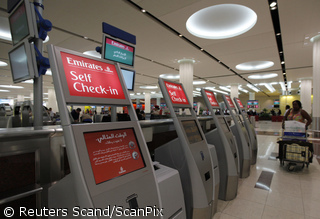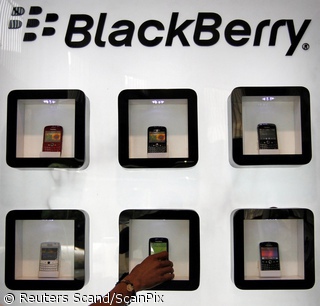The Australian Competition and Consumer Commission (ACCC) has called for an end to the practice of cybersquatting and for changes to the way disputes between domain name holders are managed.
Published:
25 June 2001 y., Monday
The consumer watchdog made the call in a submission to a WIPO (World Intellectual Property Organization) investigation of domain name issues.
Cybersquatting is the term used to describe the bad faith registration of a domain name. A domain name is often reserved with no intention to use it, save to prevent another company from using it or to make a profit by selling the name. The practice is bad for all online businesses, not just those directly affected, the ACCC says. The ACCC's position is that cybersquatting should be outlawed and cybersquatters evicted.
The watchdog believes that anyone applying for a domain name should be required to show a legal interest in that name. This is at odds with the current policy in .com, for example, which carries no such requirement.
In the future, the agency calls for new domains focused on particular types of users, rather than those of the "open slather" variety that it says allow cybersquatters to thrive.
The previous WIPO investigation of domain names partly resulted in the institution of the Uniform Domain Name Dispute Resolution Policy (UDRP) by the Internet Corporation for Assigned Names and numbers (ICANN), the world body that manages the domain name system.
Šaltinis:
Newsbytes
Copying, publishing, announcing any information from the News.lt portal without written permission of News.lt editorial office is prohibited.
The most popular articles
Software company announced new structure_ of it_s business.
more »
 Unisys Corporation (NYSE: UIS) announced enhancements to its Baggage Reconciliation System (BRS) featuring more detailed information about baggage handling requirements for incoming flights, real-time monitoring and alerts of service level agreements (SLAs), and a mobile app to provide passengers with live updates on when and where to collect their bags.
more »
Unisys Corporation (NYSE: UIS) announced enhancements to its Baggage Reconciliation System (BRS) featuring more detailed information about baggage handling requirements for incoming flights, real-time monitoring and alerts of service level agreements (SLAs), and a mobile app to provide passengers with live updates on when and where to collect their bags.
more »
 Samsung doubled its share of the tablet PC market in the last three months of 2012, research firm IDC has said.
more »
Samsung doubled its share of the tablet PC market in the last three months of 2012, research firm IDC has said.
more »
 Facebook boss Mark Zuckerberg has strongly denied the social network is planning to release its own phone.
more »
Facebook boss Mark Zuckerberg has strongly denied the social network is planning to release its own phone.
more »
 The OnLive gaming service is to be made available to Google TV users, following a deal with electronics firm LG. One of a handful of firms making hardware for Google TV. LG's G2 series sets have Google's TV service built in.
more »
The OnLive gaming service is to be made available to Google TV users, following a deal with electronics firm LG. One of a handful of firms making hardware for Google TV. LG's G2 series sets have Google's TV service built in.
more »
 Blackberry has become the latest smartphone to offer free wi-fi calls to users via its own software. Research In Motion (RIM) has added the facility to its Blackberry Messenger (BBM) app, which already offered an alternative to text messages.
more »
Blackberry has become the latest smartphone to offer free wi-fi calls to users via its own software. Research In Motion (RIM) has added the facility to its Blackberry Messenger (BBM) app, which already offered an alternative to text messages.
more »
 We are delighted to announce that on 26th of January SafeNet Sentinel Cloud was awarded the SiiA 2012 Best Digital Rights Management Solution!
more »
We are delighted to announce that on 26th of January SafeNet Sentinel Cloud was awarded the SiiA 2012 Best Digital Rights Management Solution!
more »
 The Spanish government has approved tough new legislation which could see websites deemed to be trading in pirated material blocked within ten days.
more »
The Spanish government has approved tough new legislation which could see websites deemed to be trading in pirated material blocked within ten days.
more »
 The Los Angeles World Airports (LAWA), which oversees airport operations for the city of Los Angeles, has awarded a contract modification to Unisys (NYSE: UIS) to upgrade its access control and alarm monitoring system, used to identify the 45,000 airport employees, contractors, police and others who work at the organization’s three airports.
more »
The Los Angeles World Airports (LAWA), which oversees airport operations for the city of Los Angeles, has awarded a contract modification to Unisys (NYSE: UIS) to upgrade its access control and alarm monitoring system, used to identify the 45,000 airport employees, contractors, police and others who work at the organization’s three airports.
more »
 Unisys Corporation (NYSE: UIS) today announced Version 2 of its Unisys Secure Private Cloud Solution, the company’s flagship cloud solution for clients’ and cloud service providers’ data centers.
more »
Unisys Corporation (NYSE: UIS) today announced Version 2 of its Unisys Secure Private Cloud Solution, the company’s flagship cloud solution for clients’ and cloud service providers’ data centers.
more »
 An American blogger has discovered three fake Apple stores operating in Kunming city, China.
more »
An American blogger has discovered three fake Apple stores operating in Kunming city, China.
more »